-
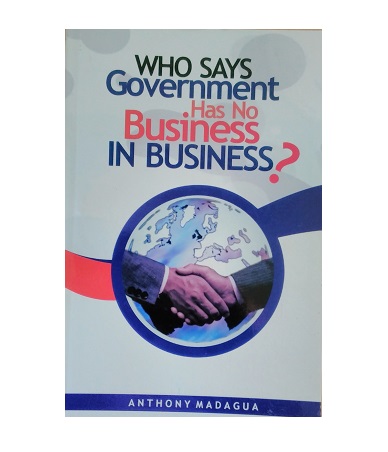
Who Says Government Has No Business in Business?
₦1,000Nigeria in the 70s was looked upon as adequately ebdowed with great potentials to become one of the emerging economies alongside countries like India, Malaysia, Brazil, South Korea, Iran amongst others and more importantly as a beacon of hope for sub-Saharan Africa and the Black nations. All these aforementioned counties have lived uo to expectations and in some cases surpassed them. Nigeria has refused to grow and develop. it still depends wholly on imports for its equipment, plant and machineries, spares, food and even fuel to move her citizen around. This book x-rays the Industrial Revolution, the processes and routes undertaken by other nations to indutrialize and bring porsperity to their reverse the situation in Nigeria. this in debth exposition clearly indicate that government do have business in business. Who is then saying government has no business in business? This book is a must read for all Nigerians especially those who are yearning and waiting for this dream and aspiration of all the Black nations of the World to be fulfilled in this entity called Nigeria.
-

THE PRINCE
₦1,000As a young Florentine envoy to the courts of France and the Italian principalities, Niccolò Machiavelli (1469–1527) was able to observe firsthand the lives of people strongly united under one powerful ruler. His fascination with that political rarity and his intense desire to see the Medici family assume a similar role in Italy provided the foundation for his “primer for princes.” In this classic guide to acquiring and maintaining political power, Machiavelli used a rational approach to advise prospective rulers, developing logical arguments and alternatives for a number of potential problems, among them governing hereditary monarchies, dealing with colonies and the treatment of conquered peoples. Refreshing in its directness, yet often disturbing in its cold practicality, The Prince sets down a frighteningly pragmatic formula for political fortune. Starkly relevant to the political upheavals of the 20th century, this calculating prescription for power remains today, nearly 500 years after it was written, a timely and startling lesson in the practice of autocratic rule that continues to be much read and studied by students, scholars and general readers as well.
-

EVIDENCE ACT 2011
₦1,500Evidence Act 2011: Synoptic Guide is in its second edition. this book contains the text of the Act itsef, section by section. it also followed by synoptic guide providing summaries together with relevant cases and questions. it is fully updated to cover the new innovations contained in the Act.
-

CRIMINAL PROCEDURE CODE: SYNOPTIC GUIDE
₦1,200This is the 3rd edition of the Criminal Procedure Code in line with our current effort to reposition LawLord Publications as one of the leading legal supportservice providers. this edition is packaged for those offering Criminal Procedure Law in our Law Schools, Univerties, Paralegal Institutions and other agencies. It is a necessary companion for lawyers, students, law enforcement agencies and general readers.
-
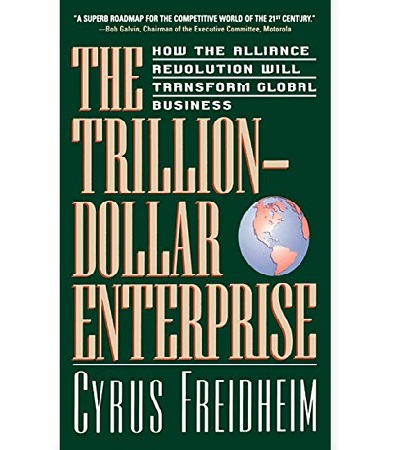
The Trillion-Dollar Enterprise : How the Alliance Revolution Will Transform Global Business
₦1,500Beyond the multinational corporation—even beyond the mega-corporation built from aggressive mergers and acquisitions—a new form of global business is emerging, and it is changing the competitive landscape forever. In his visionary book, The Trillion-Dollar Enterprise, Cyrus Freidheim offers a front-row seat to this seismic shift, through which a few dominant enterprises will control two-thirds of the global market in their respective industries. But they won’t be corporations as we’ve known them. They will be vast networks of corporate alliances—global coalitions of independent firms acting in concert as single entities, and combining assets that exceed the entire output of many nations.Drawing from fifteen years of groundbreaking research at Booz-Allen & Hamilton, Freidheim convincingly demonstrates that the rise of networks of this magnitude is natural and inevitable, as companies forego traditional—and riskier—methods of expansion in favor of alliances, joint ventures, and other collaborative arrangements that capture the best capabilities of the participants while avoiding the bureaucratic disadvantages of size. Already, we are witnessing the convergence in industries as diverse as telecommunications, aerospace, and commercial aviation into alliance networks, clustered around a few dominant players. For example, the global airline industry is coalescing around networks, led by United and Lufthansa in the Star Alliance and by American Airlines and British Airways in another.From the global stage, Freidheim takes up deep into the heart of ”Trillion-Dollar Enterprises” in development, identifying the key elements of successful network formation, and outlining new roles and responsibilities for managers, executives, teams and boards. Freidheim ultimately calls for revolutionary changes in how business leaders should be educated and rewarded, as the skills of diplomacy and negotiation take priority over functional expertise.In his provocative conclusion, Freidheim takes us twenty-five years into the future to explore looming public issues as the forces of commercial globalization and political sovereignty collide, challenging existing paradigms of anti-trust, trade, and labor policies—and even national security.
-
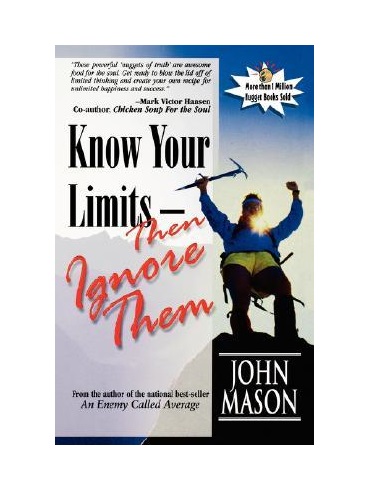
Know Your Limits – Then Ignore Them
₦1,200National best-selling author John Mason shows you how to take the lid off and capture momentum for your life. Each nugget is a source of sound wisdom, proven insight, and practical principles. In this book you will learn how to: Overcome fears and find success. Go farther than you can see. Use what you already have to go to the next level. Make your problem your promotion. Lift limits and multiply your opportunities…and 96 other valuable nuggets. Know Your Limits-Then Ignore Them is a powerful book that will help you live a fulfilled life.
-
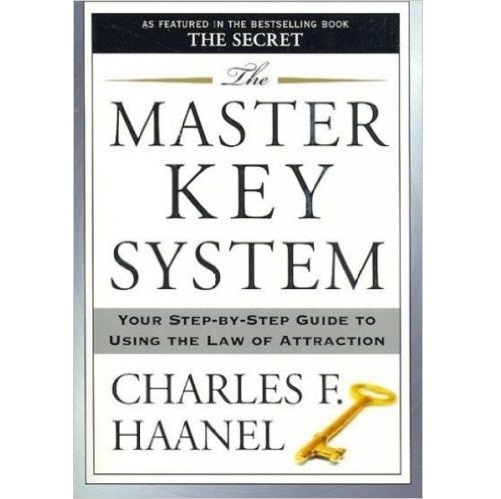
The Master Key System
₦1,000A MUST OWN! The Master Key System is a personal development book by Charles F. Haanel that was originally published as a correspondence course in 1912. Though originally a 24 week correspondence course, it was published in book form in 1916. It was first published as a book in 1916 by Psychology Publishing, St. Louis and The Master Key Institute, New York.
-
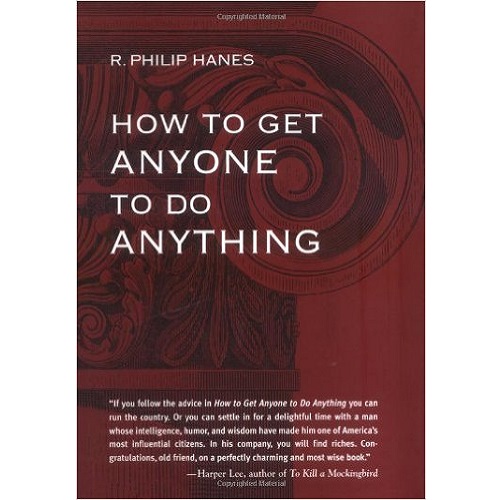
How to Get Anyone to Do Anything
₦3,000You can accomplish anything you can dream if you get someone else to do it! is the personal mission statement and secret weapon of the irrepressible R. Philip Hanes. A dynamic and visionary entrepreneur, civic leader, and philanthropist whose CV includes posts at the National Endowment of the Arts and the Smithsonian, Hanes packs at least 10 lifetimes’ worth of experience and achievement into a memoir of his first 80 years. HOW TO GET ANYONE TO DO ANYTHING is not only the story of an exceptional life, it’s a manual for how to make your own life exceptional.
-

Asset Protection (Entrepreneur Magazine’s Legal Guide) 1st Edition
₦3,000As a business owner, you can’t prevent gold-diggers from bringing frivolous lawsuits against you. It’s relatively easy for someone to invent a hollow lawsuit and find a lawyer to present it. It’s not uncommon for the jury to give credence to the most ludicrous lawsuit on the assumption that it wouldn’t be in the court system unless it had merit.
-
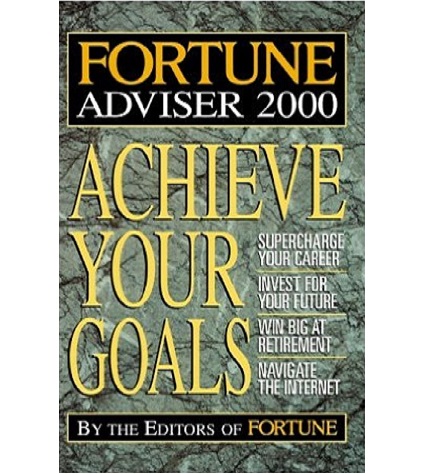
Fortune Adviser 2000: Achieve Your Goals
₦2,000Examines strategies for improving your financial position, including retirement planning, management techniques, career planning, and more.
-
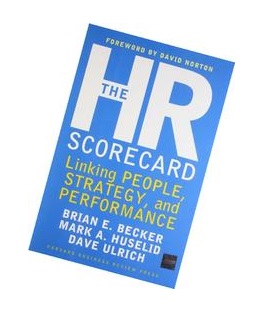
The HR Scorecard: Linking People, Strategy, and Performance
₦1,500Three experts in Human Resources introduce a measurement system that convincingly showcases how HR impacts business performance. Drawing from the authors’ ongoing study of nearly 3,000 firms, this book describes a seven-step process for embedding HR systems within the firm’s overall strategy–what the authors describe as an HR Scorecard–and measuring its activities in terms that line managers and CEOs will find compelling. Analyzing how each element of the HR system can be designed to enhance firm performance and maximize the overall quality of human capital, this important book heralds the emergence of HR as a strategic powerhouse in today’s organizations.
-
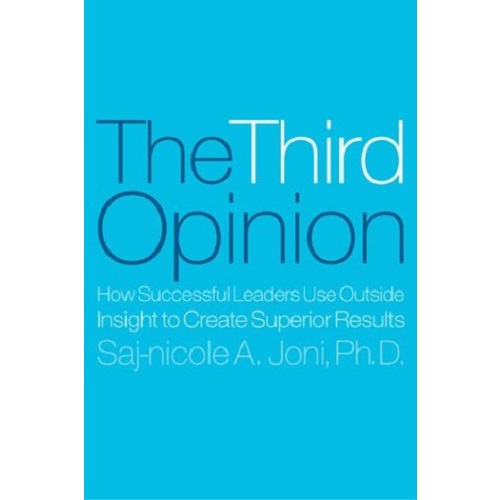
The Third Opinion: How Successful Leaders Use Outside Insight to Create Superior Results
₦1,500No matter where you stand on the corporate ladder, being a leader in today’s business world is a tough, sometimes even isolating experience. Of course, there are many people you can turn to for advice. First, youíll certainly get an opinion from your closest co-workers. You may then turn to colleagues (inside or outside the company) for a second opinion. But there is another opinion–the third opinion–that most people never ask for, and it is the most important one of all.
In The Third Opinion, Saj-nicole Joni explains how everyone from CEOs and senior executives to department heads and managers can create a loyal and diverse inner circle of advisers, experts, mentors, confidants, and thinking partners, all eager to offer their unvarnished insight at a momentís notice.
What can your inner circle offer that other networks can’t? Outside insight–the most trustworthy, loyal, unbiased perspective that exists. You can’t create the undivided loyalty of outside insight solely within the confines of your organization, and it cannot be bought. Rather, it’s a result of developing powerful reciprocal relationships. The Third Opinion is the first book to examine how anyone can develop this vital but often overlooked key to reaching and sustaining peak performance.
Based on Dr. Joniís years of research and her work as a well-respected third-opinion adviser to some of the worldís top executives, The Third Opinion is a practical guide to building the most powerful advisory team possible at each stage of your career. It will teach you how to assemble a select group of experts who will sit with you and think about the issues affecting you; who will offer solutions and alternatives, suggest ideas, look for errors, and offer support, not just during crises but anytime you need advice. Filled with compelling real-life examples, THE THIRD OPINION shows how his inner circle will provide the kind of guidance, input, trust, and feedback that can turn a good leader into a great one.
